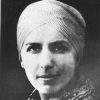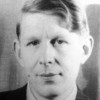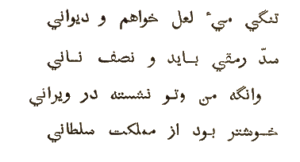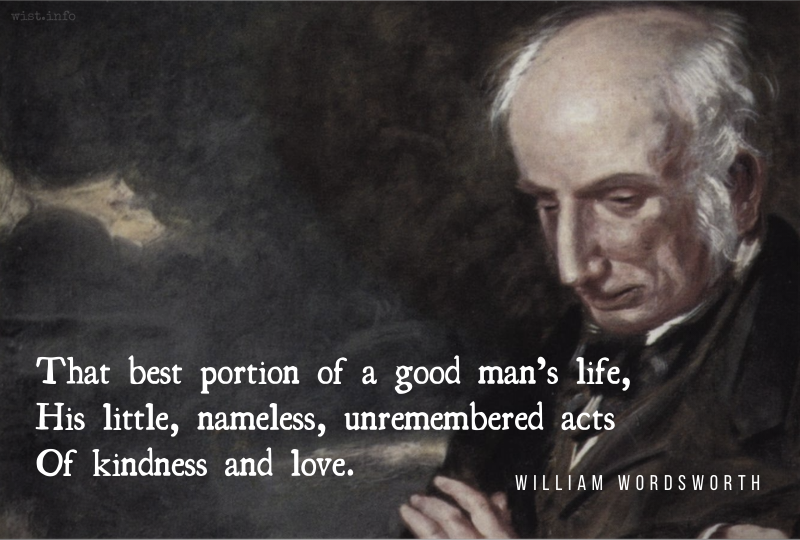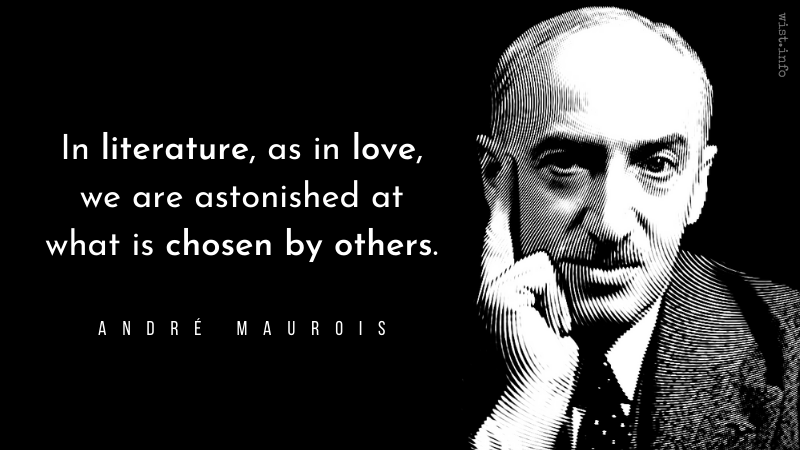Quotations about:
love
Note not all quotations have been tagged, so Search may find additional quotes on this topic.
The supreme happiness of life is the conviction that we are loved; loved for ourselves — say rather, loved in spite of ourselves.
[Le suprême bonheur de la vie, c’est la conviction qu’on est aimé; aimé pour soi-même, disons mieux, aimé malgré soi-même.]
Victor Hugo (1802-1885) French writer
Les Misérables, Part 1 “Fantine,” Book 5 “The Descent,” ch. 4 (1.5.4) (1862) [tr. Wilbour (1862)]
(Source)
(Source (French)). Alternate translations:
The supreme happiness of life is the conviction of being loved for yourself, or, more correctly speaking, loved in spite of yourself.
[tr. Wraxall (1862)]
The greatest happiness of life is the conviction that we are loved -- loved for ourselves, or rather, loved in spite of ourselves.
[E.g. (1873)]
The supreme happiness of life consists in the conviction that one is loved; loved for one's own sake -- let us say rather, loved in spite of one's self.
[tr. Hapgood (1887)]
The supreme happiness in life is the assurance of being loved; of being loved for oneself, even in spite of oneself.
[tr. Denny (1976)]
The supreme happiness of life is the conviction that we are loved; loved for ourselves -- say rather, loved in spite of ourselves.
[tr. Wilbour/Fahnestock/MacAfee (1987)]
The supreme happiness of life is the conviction that you are loved, loved for yourself, better still, loved despite yourself.
[tr. Donougher (2013)]
Love, with very young people, is a heartless business. We drink at that age from thirst, or to get drunk; it is only later in life that we occupy ourselves with the individuality of our wine.
Isak Dinesen (1885-1962) Danish writer [pseud. of Karen Christence, Countess Blixen]
“The Old Chevalier,” Seven Gothic Tales (1934)
(Source)
KEATING: We don’t read and write poetry because it’s cute. We read and write poetry because we are members of the human race. And the human race is filled with passion. And medicine, law, business, engineering, these are noble pursuits and necessary to sustain life. But poetry, beauty, romance, love, these are what we stay alive for.
The wise lover does not consider so much the lover’s gift, as the giver’s love. He pays more attention to the giver’s affection than to the gift’s value, and he places less value on all gifts than he does on the beloved.
[Prudens amator non tam donum amantis, quam dantis considerat amorem. Affectum potius attendit, quam censum, et infra dilectum omnia data ponit.]
Thomas à Kempis (c. 1380-1471) German-Dutch priest, author
The Imitation of Christ [De Imitatione Christi], Book 3, ch. 6, v. 2 (3.6.2) (c. 1418-27) [tr. Creasy (1989)]
(Source)
(Source (Latin)). Alternate translations:
He that loves prudently, keeps his Eyes upon the Giver, considers the Kindness and Disposition of his Friend, and values the Gift by that, not by his own Quality and Instrinsick Worth.
[tr. Stanhope (1696; 1706 ed.), The Christian's Pattern]
And he that loves with purity, considers not the gift of the lover, but the love of the giver: he values the affection more than the tokens of it: esteems his beloved infinitely beyond the benefits he confers.
[tr. Payne (1803), 3.5.1]
A prudent lover considereth not so much the gift of his lover, as the love of the giver. He rather esteemeth the good will, then the value, and placeth all gifts under his beloved.
[tr. Page (1639), 3.6.5]
He that loves prudently, keeps his eyes upon the giver, considers the kindness and disposition of his friend, and values the gift by that, not by its own quality and intrinsic worth.
[tr. Stanhope (1696; 1809 ed.), The Christian's Pattern]
A considerate lover regardeth not so much the gift of Him who loves him, as the love of the Giver,He esteems the good will rather than the value [of the gift,] and sets all gifts below Him whom he loves.
[ed. Parker (1841)]
He that loves with purity, considers not the gift of the lover, but the love of the giver: he values the affection more than the tokens of it, and places all gifts infinitely below the donor.
[tr. Dibdin (1851), 3.5]
A wise lover considers not so much the gift of the lover as the love of the giver. He looks more at the goodwill than the value, and sets his beloved above all his gifts.
[ed. Bagster (1860)]
A wise lover considereth not so much the gift of his lover as he doth the love of the giver. He regardeth more the love than the gift, and accounteth all gifts little in comparison of his Beloved, who giveth them to him.
[tr. Whitford/Raynal (1530/1871)]
The prudent lover considereth not the gift of the lover so much as the love of the giver. He looketh for the affection more than the value, and setteth all gifts lower than the Beloved.
[tr. Benham (1874), 3.6.4]
A considerate lover regardeth not so much the gift of him who loves him, as the love of the giver. He esteems the good will rather than the value of the gift, and sets all gifts below him whom he loves.
[tr. Anon. (1901)]
The wise lover regards not so much the gift of Him Who loves as the love of Him Who gives. He regards the affection of the Giver rather than the value of the gift, and sets his Beloved above all gifts.
[tr. Croft/Bolton (1940)]
The wise lover does not so much consider a gift from the beloved, as the love of the giver. He turns to the feeling rather than the value, and sets all gifts below the one loved.
[tr. Daplyn (1952)]
A wise lover values not so much the gift of the lover, as the love of the giver. He esteems the affection above the gift, and values every gift far below the Beloved.
[tr. Sherley-Price (1952)]
An experienced lover heeds not so much the gift of the lover as the love of him that gave it. What he looks for is affection, not money; his Beloved is higher in his eyes than any gift.
[tr. Knox-Oakley (1959)]
A wise lover does not look at the gift of the one who loves him, but at the love of the giver. He weighs the affection and not the value; and he thinks more of the Beloved than of what the Beloved has to give.
[tr. Knott (1962)]
The prudent lover considers not so much the lover's gift as the love of the giver. He looks at the love that gave the gift rather than the cost. He places the beloved above all.
[tr. Rooney (1979)]
Among those whom I like or admire, I can find no common denominator, but among those whom I love, I can: all of them make me laugh.
W. H. Auden (1907-1973) Anglo-American poet [Wystan Hugh Auden]
The Dyer’s Hand and Other Essays, Part 7 “The Shield of Perseus,” “Notes on the Comic” (1962)
(Source)
THESEUS: Lovers and madmen have seething brains,
Such shaping fantasies, that apprehend
More than cool reason ever comprehends.William Shakespeare (1564-1616) English dramatist and poet
Midsummer Night’s Dream, Act 5, sc. 1, l. 4 (5.1.4-6) (1605)
(Source)
A Book of Verses underneath the Bough,
A Jug of Wine, a Loaf of Bread — and Thou
Beside me singing in the Wilderness —
Oh, Wilderness were Paradise enow.
Omar Khayyám (1048-1123) Persian poet, mathematician, philosopher, astronomer [عمر خیام]
Rubáiyát [رباعیات], Bod. # 149 [tr. FitzGerald, 3rd ed. (1872), # 12]
(Source)
Fitzgerald used the same translation for his 4th and 5th ed.
There are at least two close variants of this quatrain (Bodleian 149 and 153). Both introduce the wine, maybe the bread or meat, some verse, and a love interest. In the first variant, in some cases, the setting is in the wilderness which is turned to a virtual Paradise by the accoutrements; in the second case, the other factors turn the writer's mind away from Paradise itself. In the second variant, these items all brought together are valued more highly than the wealth of the Sultan. Some translators blend these together, others break them out in two (or three!) quatrains. While concordances (especially in the 19th Century) draw connections, they sometimes contradict. I have included them all here, for the reader to discern their own differences.
Alternate translations:
Some ruby wine and a diwan of poems,
A crust of bread to keep the breath in one's body,
And thou and I alone in a desert, --
Were a lot beyond a Sultan's throne.
[tr. Cowell (1858), # 13]
Here with a Loaf of Bread beneath the Bough,
A Flask of Wine, a Book of Verse -- and Thou
Beside me singing in the Wilderness --
And Wilderness is Paradise enow.
[tr. FitzGerald, 1st ed. (1859), # 11]
Here with a little Bread beneath the Bough,
A Flask of Wine, a Book of Verse -- and Thou
Beside me singing in the Wilderness --
Oh, Wilderness were Paradise enow!
[tr. FitzGerald, 2nd Ed (1868), # 12]
In Spring time I love to sit in the meadow with a paramour perfect as a Houri and goodly jar of wine, and though I may be blamed for this, yet hold me lower than a dog if ever I dream of Paradise.
[tr. McCarthy (1888), # 177]
When the hand possesses a loaf of wheaten bread, two measures of wine, and a piece of flesh, when seated with tulip-cheeks in some lonely spot, behold such joy as is not given to all sultans.
[tr. McCarthy (1888), # 398]
Give me a flagon of red wine, a book of verses, a loaf of bread and a little idleness. If with such store I might sit by thy dear side in some lonely place, I should deem myself happier than a king in his kingdom.
[tr. McCarthy (1888), #449]
In the sweet spring a grassy bank I sought
And thither wine and a fair Houri brought;
And, though the people called me graceless dog,
Gave not to Paradise another thought!
[tr. Whinfield (1883), # 84]
Give me a skin of wine, a crust of bread,
A pittance bare, a book of verse to read;
With thee, love, to share my lowly roof,
I would not take the Sultan's realm instead!
[tr. Whinfield (1883), # 452]
A Flask of Wine, a book, a Loaf of Bread, --
To every Care and Worldly Sorrow dead,
I covet not, when thou, oh Love, art near,
The Jeweled Crown upon the Sultan's Head.
[tr. Garner, 1.8 (1888)]
Yes, Loved One, when the Laughing Spring is blowing,
With Thee beside me and the Cup o’erflowing,
I pass the day upon this Waving Meadow,
And dream the while, no thought on Heaven bestowing.
[tr. Garner, 1.20 (1888)]
A flask of red wine, and a volume of song, together --
Half a loaf, -- just enough the ravage of Want to tether:
Such is my wish -- then, thou in the waste with me --
Oh! sweeter were this than a monarch's crown and feather!
[tr. M. K. (1888)]
In the Springtime, biding with one who is houri-fair,
And a flask of wine, if 't is to be had -- somewhere
On the tillage's grassy skirt -- Alack ! though most
May think it a sin, I feel that my heaven is there!
[tr. M. K. (1888)]
A book, a woman, and a flask of wine:
The three make heaven for me; it may be thine
Is some sour place of singing cold and bare --
But then, I never said thy heaven was mine.
[tr. Le Gallienne (1897)]
A book, a flask of wine, a crust of bread,
To every care and worldly sorrow dead,
I covet not when thou, oh, Love, art near,
The jeweled turban on the sultan's head.
[tr. Garner (1898), # 8]
A gugglet of wine and a book of poesy,
The haf of a loaf of bread and a penny fee,
And I in a nook of some ruin seated with thee,
Were better than king on a kingdom's throne to be.
[tr. Payne (1898), # 829]
I desire a little ruby wine and a book of verses,
Just enough to keep me alive, and half a loaf is needful;
And then, that I and thou should sit in a desolate place
Is better than the kingdom of a sultan.
[tr. Heron-Allen (1898), # 149]
If a loaf of wheaten-bread be forthcoming,
a gourd of wine, and a thigh-bone of mutton, and then,
if thou and I be sitting in the wilderness, --
that would be a joy to which no sultan can set bounds.
[tr. Heron-Allen (1898), # 155]
A book of verses underneath the vine,
A loaf of bread, a jug of ruby wine,
And thou beside me, resting in the wild,
Would make the dreary wilderness divine!
[tr. Roe (1906), # 25]
A skin of red wine, book of poesy.
Bread, a half loaf, enough for life give me.
Then sitting in some solitude with thee
Were sweeter than the Sultan's empery!
[tr. Thompson (1906), # 560]
If bread you have made from the grain of wheat,
Two maunds of wine, a mutton joint for meat,
In some nook sitting with fair Tulip-cheeks,
Not every Sultan hath such joy complete!
[tr. Thompson (1906), # 586]
Give me a scroll of verse, a little wine,
With half a loaf to fill thy needs and mine,
And with the desert sand our resting place,
For ne'er a Sultan's kingdom would we pine.
[tr. Talbot (1908), # 149]
Let Fortune but provide me bread of wheat,
A gourd of wine, a bone of mutton sweet,
Then in the desert if we twain might sit,
Joys such as ours no Sultan could defeat.
[tr. Talbot (1908), # 155]
If we get but a loaf of wheaten-bread, a gourd of wine
and a leg of mutton.
and if I and thou be sitting in the wilderness, that
were a treat beyond the powers of most sultans.
[tr. Christensen (1927), # 28]
If you have a loaf made from the marrow of wheat,
Of wine two gallons and of lamb a joint,
And if you are sitting in the wilderness with one whose face is beautiful like the moon.
That would be bliss not attainable by a Sultan.
[tr. Rosen (1928), # 320]
If one could find a loaf of grinded wheat,
And with a gourd of wine and chop of meat
Retires to ruined haunts with Beloved One,
What king can hope to find such joyous treat?
[tr. Tirtha (1941), # 7.131]
The Word suffices and a book of songs,
A crumb will fill this what to earth belongs;
In solitude when I would pore on Tee,
I care no kingdoms, neither thrones nor throngs.
[tr. Tirtha (1941), # 8.131]
Should our day's portion be one mancel loaf,
A haunch of mutton and a gourd of wine
Set for us two alone on the wide plain,
No Sultan's bounty could evoke such joy.
A gourd of red wine and a sheaf of poems --
A bare subsistence, half a loaf, not more --
Supplied us two alone in the free desert:
What Sultan could we envy on his throne?
[tr. Graves & Ali-Shah (1967), # 11-12]
If one may have a loaf of the flower of wheat, a two-maund (jar) of wine, a thigh of mutton, seated with a heart's darling in a ruined place -- that is a pleasure that is not the attainment of any sultan.
[tr. Bowen (1976), # 12a]
If we were seated in a desert place,
Where I alone might gaze upon your face,
These simple victuals would our needs suffice:
A thigh of mutton in a dish of rice;
A loaf of bread of finest wheaten flour;
A flagon tall from which cool wine to pour ...
There, in the day's long leisurely decline,
No Sultan's pleasures could compare with mine.
[tr. Bowen (1976), # 12b]
I need a jug of wine and a book of poetry,
Half a loaf for a bite to eat,
Then you and I, seated in a deserted spot,
Will have more wealth than a Sultan's realm.
[tr. Avery/Heath-Stubbs (1979), # 98]
If chance supplied a loaf of white bread,
Two casks of wine and a leg of mutton,
In the corner of a garden with a tulip-cheeked girl,
There'd be enjoyment no Sultan could outdo.
[tr. Avery/Heath-Stubbs (1979), # 234]
In spring if a houri-like sweetheart
Gives me a cup of wine on the edge of a green cornfield,
Though to the vulgar this would be blasphemy,
If I mentioned any other Paradise, I'd be worse than a dog.
[tr. Ememai (1988), # 160]
Ah, would there were a loaf of bread as fare,
A joint of lamb, a jug of vintage rare,
And you and I in wilderness encamped --
No Sultan's pleasure could with ours compare.
[tr. Saldi (1991), # 16]
That best portion of a good man’s life,
His little, nameless, unremembered acts
Of kindness and love.William Wordsworth (1770-1850) English poet
“Lines Composed a few Miles above Tintern Abbey” (13 Jul 1798)
(Source)
Often paraphrased into a sentence, e.g., "The best portion of a good man's life is his little, nameless, unremembered acts of kindness and of love."
In literature, as in love, we are astonished at what is chosen by others.
[En littérature comme en amour, on est surpris par les choix des autres.]
André Maurois (1885-1967) French author [b. Émile Salomon Wilhelm Herzog]
The Art of Living [Un Art de Vivre], ch. 6 “The Art of Working” (1939) [tr. Whitall (1940)]
(Source)
(Source (French)). Sometimes cited to the New York Times, but only because it was reprinted there in the article “Reading Matter: Some Bookish Quotes” (14 Apr 1963).



